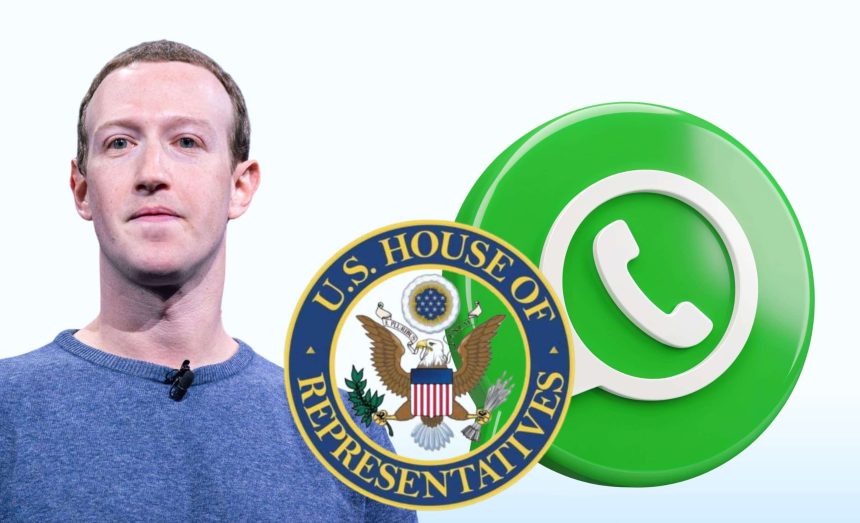The U.S. House of Representatives has issued a ban on the use of WhatsApp across all government-issued staff devices, citing cybersecurity concerns.
According to an internal memo first reported by Reuters, the Office of Cybersecurity categorized the messaging app as a “high risk to users,” citing concerns over data protection, transparency, and potential vulnerabilities.
The memo specifically referenced the lack of clarity in WhatsApp’s data protection practices, the absence of stored data encryption, and general security risks tied to its usage.
Instead, staff have been directed to communicate via alternatives such as Signal, iMessage, FaceTime, and Microsoft Teams—platforms deemed more secure by the Office of the Chief Administrative Officer.
Meta, the parent company of WhatsApp, issued a sharp rebuttal. In an emailed statement, a Meta spokesperson said:
“We disagree with the House Chief Administrative Officer’s characterization in the strongest possible terms. Messages on WhatsApp are end-to-end encrypted by default, meaning only the recipients—and not even WhatsApp—can see them. This is a higher level of security than most of the apps on the CAO’s approved list.”
The company continues to defend its privacy credentials, pointing to WhatsApp’s global user base and robust encryption standards as evidence of its commitment to secure communication.
Recent Incidents May Have Influenced the Ban
Though no direct link was established, the decision follows closely after Meta reported disrupting a hacking campaign in January 2025 that targeted about 90 WhatsApp users, including several journalists.
The attack was allegedly orchestrated by Paragon Solutions, an Israeli spyware company reportedly acquired by AE Industrial Partners, a U.S.-based private equity firm.
In a related May report, Paragon was named among spyware vendors whose clients may include governments in Australia, Canada, Cyprus, Denmark, Israel, and Singapore—raising global concerns over the use of consumer messaging apps in sensitive environments.
The House ban reflects a broader trend of government agencies tightening control over digital tools in an era of heightened cyber threats.
While WhatsApp’s end-to-end encryption remains a cornerstone of its appeal, critics continue to raise questions about metadata collection, server-side vulnerabilities, and the company’s transparency around data-sharing policies.
Meanwhile, platforms like Signal have seen growing adoption among journalists, human rights groups, and public institutions due to their open-source models and minimal data retention policies.
Talking Points
The ban serves as a cautionary note not just for U.S. staffers but also for enterprises, startups, and public-sector organizations worldwide—including in Africa, where Meta platforms dominate digital communication.
It reinforces the need to evaluate tools not only by convenience or popularity, but by clear, verifiable standards of privacy, transparency, and resilience against surveillance threats. In today’s cyber-political climate, trust isn’t assumed—it’s audited.





